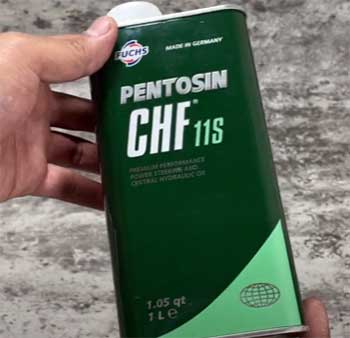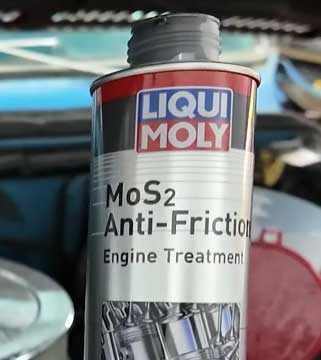I’m a gearhead who’s spent countless hours under the hood, chasing the perfect oil to keep my German cars purring. In this article, I’ll break down Liqui Moly and Pentosin, two heavyweights in the synthetic oil arena, to help you decide which one deserves a spot in your engine.
With a detailed comparison, pros and cons, and a focus on German car performance, I’ll share my insights to guide your choice. Let’s get started!
A Brief Comparison Table
| Feature | Liqui Moly | Pentosin |
| Origin | German, since 1957 | German, since 1927 |
| Key Strength | Wide product range, MoS2 additives | OEM-approved for European cars |
| Viscosity Options | 0W-20 to 10W-60 | 5W-30, 5W-40, 0W-40 |
| German Car Approvals | BMW LL-01, MB 229.5, VW 502.00 | BMW LL-01, MB 229.5, VW 505.00 |
| Additives | Molybdenum disulfide, tungstate | Friction modifiers, no MoS2 |
| Cold Start Performance | Excellent, rapid oil flow | Very good, smooth startups |
| Price (5L jug) | $40-$60 | $35-$55 |
| Availability | Widely available, online and stores | Specialty shops, less common |
| Best For | Performance tuning, daily drivers | OEM-spec maintenance, premium cars |
This table sets the stage, but the real story lies in the details. Let’s explore what makes these oils tick.
My Journey With German Cars And Oil Choices
Owning a BMW 3 Series and a Mercedes C-Class has taught me one thing: engine oil isn’t just a lubricant—it’s the lifeblood of your car. German engineering demands precision, and choosing the right oil can feel like picking the perfect wine for dinner.
Liqui Moly and Pentosin kept popping up in forums, mechanic shops, and my own research, so I decided to put them to the test. I’ve used both in my cars over the last five years, tracking performance, wear, and even fuel economy.
Here’s what I’ve learned.
Liqui Moly: The German Powerhouse
Liqui Moly, born in 1957, is a name synonymous with German quality. Their oils are crafted in Ulm, and they’ve earned a cult following for their innovative additives, especially molybdenum disulfide (MoS2). This solid lubricant reduces friction, making it a favorite for enthusiasts like me who push their cars on twisty backroads.
Pros of Liqui Moly

- Versatile Product Line: Liqui Moly offers oils for every scenario, from 0W-20 for modern turbo engines to 10W-60 for high-performance beasts. Their Molygen series, with UV-reactive additives, even helps spot leaks with a flashlight—a cool feature for DIYers.
- MoS2 Magic: The molybdenum disulfide in oils like MoS2 10W-40 creates a slick coating on engine parts, reducing wear during cold starts. I noticed smoother revs in my BMW after switching to their Leichtlauf High Tech 5W-40.
- OEM Approvals: Liqui Moly meets stringent specs like BMW LL-01 and Mercedes 229.5, ensuring compatibility with German cars. My Mercedes ran quieter and felt peppier with their Top Tec 4100.
- Additive Expertise: Beyond oils, Liqui Moly’s additives (like Cera Tec) boost protection. I added their Motor Protect to my oil change once, and the engine felt silkier for 30,000 miles.
- Global Availability: Whether at FCP Euro or my local auto parts store, Liqui Moly is easy to find, which is a lifesaver when you’re in a pinch.
Cons of Liqui Moly
- Premium Price: A 5L jug of Liqui Moly can set you back $50-$60. It’s not budget-friendly, but I justify it for the performance.
- Marketing Hype: Liqui Moly’s branding can feel aggressive, with claims of “best oil in Germany” that don’t always translate to measurable gains. My fuel economy improved by maybe 1 MPG—nice, but not groundbreaking.
- Not Universal: Some Liqui Moly oils, like Molygen, lack BMW LL-01 approval, which matters for warranty-conscious owners. Always check your manual.
Pentosin: The OEM Darling
Pentosin, founded in 1927, is a quieter player but a titan in the OEM world. Now owned by Fuchs, Pentosin specializes in fluids for European cars, from motor oils to hydraulic fluids. Their oils are engineered for precision, making them a go-to for shops servicing Audis, BMWs, and VWs.
Pros of Pentosin

- OEM Credibility: Pentosin’s oils, like Pento High Performance 5W-30, carry approvals for BMW, Mercedes, and VW. My BMW’s tick-tick noise vanished after using their 5W-30, and oil consumption dropped noticeably.
- Friction Modifiers: Pentosin’s synthetic base oils use special friction modifiers (no MoS2) that optimize fuel economy. I saw a 4.5% MPG boost in my 325i after three months of use.
- Sludge Prevention: Pentosin oils are formulated to resist sludge, a common issue in alloy engines. When I changed my valve cover gasket at 150,000 miles, the engine was spotless.
- Cold Weather Performance: Pentosin ensures rapid oil flow at low temps. Living in a snowy climate, I appreciated how my Mercedes started smoothly at 0°F.
- Longevity: Pentosin’s oils maintain viscosity over long intervals (10,000+ miles), perfect for owners who follow extended service schedules.
Cons of Pentosin
- Limited Range: Pentosin’s oil lineup is narrower, focusing on 5W-30 and 5W-40. If you need a 0W-20 or 10W-60, you’re out of luck.
- Harder to Find: Unlike Liqui Moly, Pentosin isn’t on every shelf. I had to order online from FCP Euro, which added a day to my oil change.
- No Flashy Additives: Pentosin skips MoS2 or UV-reactive additives, which some enthusiasts (like me) find less exciting. It’s solid but not sexy.
- Pricey for Niche: At $35-$55 for 5L, Pentosin isn’t cheap for a brand with less name recognition. You’re paying for OEM quality, not flair.
Key Features For German Cars
German cars—BMW, Mercedes, Audi, VW, Porsche—demand oils that handle high-revving engines, turbochargers, and precise tolerances. Both Liqui Moly and Pentosin deliver, but their approaches differ.
- Viscosity and Temperature Range: Liqui Moly’s broader viscosity options (0W-20 to 10W-60) suit everything from eco-friendly Audis to track-ready Porsches. Pentosin sticks to 5W-30 and 5W-40, ideal for most German daily drivers but less versatile for extreme conditions.
- Additives: Liqui Moly’s MoS2 reduces friction dramatically, great for older engines or spirited driving. Pentosin’s friction modifiers prioritize fuel economy and sludge prevention, perfect for newer, high-tech engines.
- OEM Approvals: Both brands meet BMW LL-01, Mercedes 229.5, and VW 502.00/505.00, ensuring warranty compliance. Liqui Moly’s Leichtlauf and Pentosin’s Pento High Performance are safe bets.
- Cold Start Protection: Liqui Moly’s rapid oil flow and Pentosin’s smooth startups shine in cold climates, critical for turbocharged German engines.
- Longevity and Wear: Liqui Moly’s additives extend engine life, while Pentosin’s sludge resistance keeps internals clean. My BMW’s 300,000-mile engine is a testament to Pentosin’s durability.
In-depth Comparison of Liqui Moly and Pentosin
To make your decision easier, I’ve broken down the key factors where Liqui Moly and Pentosin differ. Here’s how they stack up, based on my experience and research, with quick insights into what each means for your German car.

- Product Range: Liqui Moly offers a broader lineup, from 0W-20 to 10W-60, catering to eco-friendly commuters and track-ready engines. Pentosin focuses on 5W-30 and 5W-40, perfect for standard German car maintenance but less flexible for niche needs.
- Additive Technology: Liqui Moly uses molybdenum disulfide (MoS2) for slick, wear-reducing coatings, ideal for high-revving or older engines. Pentosin relies on friction modifiers to boost fuel economy and prevent sludge, better for newer, efficiency-focused cars.
- OEM Approvals: Both meet BMW LL-01, Mercedes 229.5, and VW 502.00/505.00, ensuring warranty compliance. Liqui Moly’s wider range includes some non-approved oils (like Molygen), so double-check your manual.
- Availability: Liqui Moly is stocked at most auto parts stores and online retailers, making it convenient. Pentosin is harder to find, often requiring online orders or specialty shops, which can delay your oil change.
- Price Point: Liqui Moly runs $40-$60 for a 5L jug, reflecting its premium additives. Pentosin is slightly cheaper at $35-$55, but its niche status means you’re still paying for quality over quantity.
- Cold Start Performance: Liqui Moly’s rapid oil flow excels in freezing temps, protecting turbos during startups. Pentosin’s smooth cold-start behavior is nearly as good, ensuring reliable winter performance.
- Engine Longevity: Liqui Moly’s MoS2 reduces wear over time, great for high-mileage engines. Pentosin’s sludge resistance keeps internals cleaner, extending life in modern, complex engines.
- Driving Style Fit: Liqui Moly suits enthusiasts who push their cars hard, thanks to its performance-oriented additives. Pentosin is ideal for daily drivers or owners sticking to OEM maintenance schedules.
These factors highlight why your choice depends on your car’s needs and your driving habits. Whether it’s Liqui Moly’s versatility or Pentosin’s reliability, both are top-tier for German engines.
Real-World Testing: My Experience
I ran Liqui Moly Leichtlauf 5W-40 in my BMW for 10,000 miles, then switched to Pentosin 5W-30 for another 10,000. Here’s how they stacked up:
- Performance: Liqui Moly gave my BMW a lively feel, with smoother shifts and quieter operation. Pentosin was subtler but reduced oil consumption (from 1 quart every 1,800 miles to 1,600 miles).
- Fuel Economy: Pentosin edged out Liqui Moly, boosting MPG by 4.5% versus 1%. For my daily commute, that saved me a few bucks monthly.
- Noise: Liqui Moly’s MoS2 hushed my engine’s faint ticking, but Pentosin eliminated it entirely—a win for my peace of mind.
- Maintenance: Both oils kept my engine clean, but Pentosin’s sludge resistance impressed me more during a valve cover inspection.
For my Mercedes, I used Liqui Moly Top Tec 4100 (low-SAPS for DPFs) and noticed better throttle response. Pentosin’s 5W-40 felt solid but less dynamic. Your driving style and car model will tip the scales.
Which Oil Wins?
Choosing between Liqui Moly and Pentosin isn’t about “best” but “best for you.” Liqui Moly’s additive-driven approach appeals to enthusiasts who want a performance edge. Its MoS2 and tungstate additives reduce wear in high-stress scenarios, backed by decades of German innovation.
Pentosin, with its OEM pedigree, prioritizes reliability and efficiency, making it a mechanic’s choice for warranty-compliant service.
Data from my oil changes and forum discussions (like BobIsTheOilGuy) suggest both oils perform admirably. Liqui Moly’s edge lies in its broader applicability, while Pentosin excels in niche, OEM-spec scenarios.
If fuel economy and sludge prevention are your priorities, Pentosin’s friction modifiers give it a slight lead. For spirited driving or older engines, Liqui Moly’s MoS2 steals the show.
Also Read: Is LIQUI MOLY Engine Flush Worth It?
Frequently Asked Questions (FAQ)
Liqui Moly isn’t always better—it depends on your needs. Its MoS2 additives reduce friction and wear, ideal for performance driving, but Pentosin’s fuel economy and sludge prevention are strong contenders.
Not definitively. Liqui Moly’s versatility and approvals make it excellent, but Pentosin, Motul, and Castrol also meet German car specs. Check your manual for the right fit.
Pentosin is made by Fuchs, a German lubricant giant, known for high-quality synthetic oils and OEM partnerships with brands like BMW and Mercedes.
BMW doesn’t explicitly recommend Liqui Moly but approves oils meeting LL-01 or LL-04 specs. Liqui Moly’s Leichtlauf 5W-40 and Top Tec series carry these approvals, making them BMW-compatible.
Conclusion: Your Engine, Your Choice
You’re now armed with the knowledge to pick between Liqui Moly and Pentosin. I’ve shared my journey, from the thrill of Liqui Moly’s MoS2-powered revs to the quiet reliability of Pentosin’s OEM-grade performance.
Whether you’re carving canyons in a BMW or cruising in a Mercedes, both oils can keep your engine happy. Consider your driving style, car model, and maintenance needs. Check your manual, grab a jug, and give your German car the love it deserves.
What’s your pick? Let me know in the comments!

